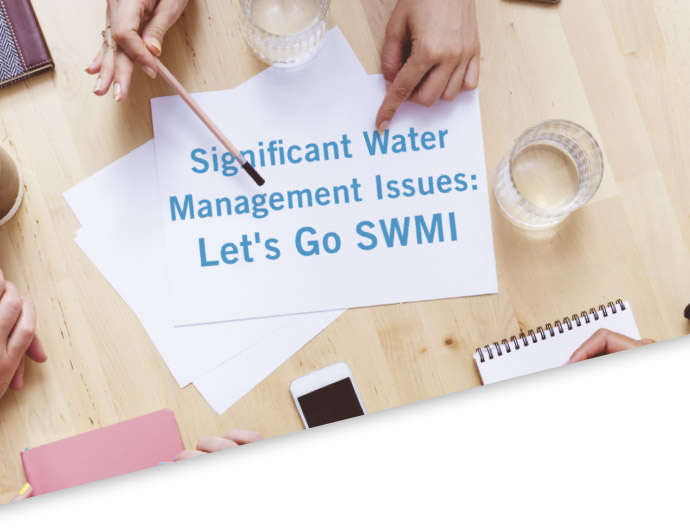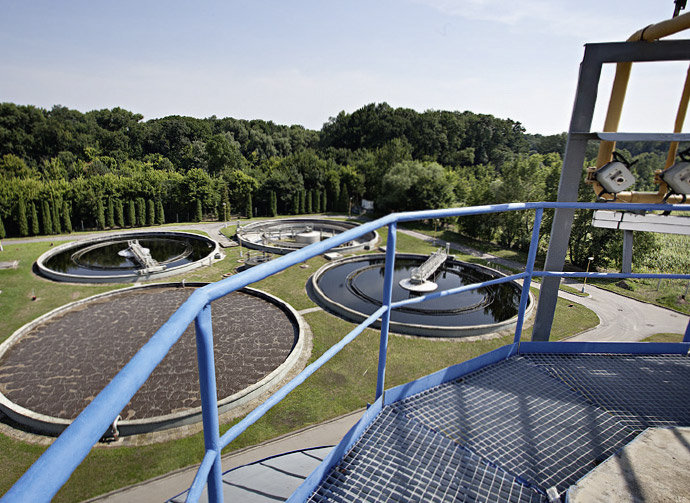Danube Watch 3/2019 - Significant Water Management Issues: Let‘s Go SWMI

T his year marks the preparation of the ICPDR's third SWMI report: a report on the significant management issues relating to water for the future. The 2019 SWMI Report lays out key issues that will go on to be addressed in the 3rd Danube River Basin District Management Plan (DRBMP), which is meant to apply to the time frame 2021-2027.
According to Article 14 of the EU Water Framework Directive, public participation in drafting River Basin Management Plans needs to be ensured. The ICPDR is at the forefront of public participation activities related to the development of the 3rd DRBMP. Towards the end of last year, the ICPDR adopted the SWMI Report with the intent of collecting public feedback and input by June 2020. This allocated time for consultation with the public is extremely important for providing the opportunity for the citizens of the Danube River Basin to raise their voice regarding the document and to draw attention to additional issues for consideration by future water management planning, hence its inclusion as a key stipulation in the WFD.
Previous SWMI reports in 2007 and 2013 respectively focused on four key issues affecting the health of the Danube River Basin's waters:
- Pollution by organic substances,
- Pollution by nutrients,
- Pollution by hazardous substances and
- Hydromorphological alterations.
Along with the issues laid out within the previous SWMI reports and DRBMP updates, a fifth issue was added: “Effects of climate change (drought, water scarcity, extreme hydrological phenomena and other impacts)”. Furthermore, the definition of a new sub-item “Alteration of the sediment balance” under the existing Significant Water Management Issue “Hydromorphological alterations” reflects the growing understanding of and ability to take on an even wider array of issues.
With the various effects of climate change becoming increasingly evident around the world, it has become very important that this problem be addressed at all levels by all stakeholders. To this end, the ICPDR's basin-wide vision to deal with adaptation to and mitigation of water-related effects of climate change (drought, water scarcity, extreme hydrological phenomena and other impacts) is to make full use of our wealth of knowledge on River Basin Management to meet these challenges. The end goal remains to achieve resilience and ultimately sustain the inherent ecological and cultural value of the aquatic environment of the Danube River Basin. Preventive measures will be taken to mitigate the impacts of climate change, to adapt to it and to minimise the related damages, thus reducing the vulnerability of aquatic, and water-related ecosystems to climate change.
Another key element of this current SWMI report is its focus on changes and progress made between the release of the first two SWMI reports, in 2007 and 2013, and now. Also taken into account are the findings of the previous DRBMP and its subsequent 2015 update and the Interim Reports from 2012 and 2018 regarding the implementation of the Joint Programme of Measures (JPM).

The updated JPM will continue to be focused on coordinating with the national programmes of measures from which it takes its form. Important to achieving the best possible outcomes of water management is integration with other sectors’ policies. Currently, the ICPDR and other organisations are striving toward broader and deeper exchange with many different sectors including inland navigation, hydropower and agriculture, alongside efforts to coordinate water management with the sustainable management of floods (EU Floods Directive 2007/60/EC (FD), as well as the marine environment (EU Marine Strategy Framework Directive 2008/56/EC (MSFD) and the Black Sea in the particular. This intensification of work with other sectors will thus create helpful synergies while avoiding potential conflicts and points of contention. The SWMI document further highlights the progress achieved related to other relevant topics important for water management at the Danube Basin-wide level. These topics include sediment quality management, up-dated information pertaining to invasive alien species and the issue of Danube sturgeons along with related ongoing activities.
As stated above, public participation in drafting the future 3rd DRBMP by allowing the public to voice its opinions on the issues laid out in the SWMI document is seen by the ICPDR as being of the utmost importance. The ICPDR updates the DRBMP as well as the DFRMP (Danube Flood Risk Management Plan) at 6-year intervals. These plans lie at the core of the ICPDR's central work programmes, and as the people of the Danube River Basin will be affected by the measures following the plans, they are given the opportunity to have a say in their development from the outset.
By ensuring buy-in and a sense of ownership in our target audience at an early stage of the process, any Basin-wide approach will stand a better chance of success. There are also many benefits to early engagement including a greater likelihood of public acceptance and support and increased awareness of important issues. Additionally, the thorough nature of public participation improves the understanding, decreases delays and facilitates more effective implementation and monitoring, resulting in smoother and more cost-effective solutions. The DRBMP and DFRMP can then be developed with the strong and interested involvement of civil society and stakeholders from the beginning via public participation events such as workshops. Very often such workshops are organised directly by the ICPDR, frequently with important partner organisations. More often, however, it is the national level at which they are organised by relevant ministries, frequently in conjunction with non-state stakeholder organisations. Public information, educational initiatives and outreach activities are also already being employed to support public participation, in addition to the more general use of social media as a communication tool.
Our scheduled update of the plans for 2021 will continue with this emboldened programme of public consultation, along with information initiatives aimed at keeping our stakeholders and the public well-informed. These include Danube Day – an annual celebration of all things Danube-related on 29th June - the publication of our in-house magazine, Danube Watch, three times a year and consultation workshops such as Voice of the Danube.
With the SWMI report laying out the Significant Water Management Issues within the Danube River Basin, it is also laying the foundation for the focus of the DRBMP. It provides a consensus beneficial for the creation of a shared language and focus, not simply for public information purposes, but also for public participation regarding the issues and how they are to be addressed on a Basin-wide level.







